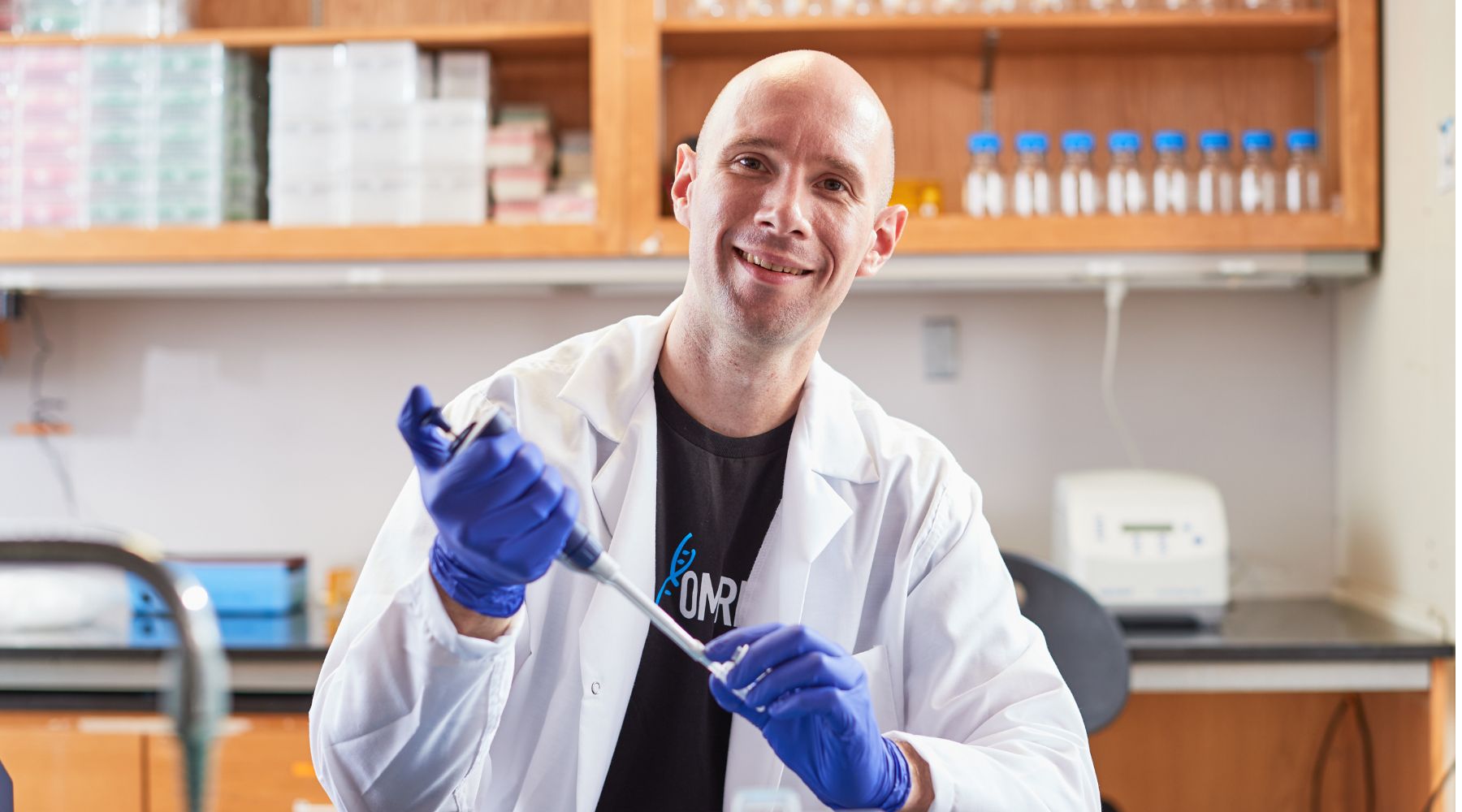The National Science Foundation has awarded Oklahoma Medical Research Foundation scientist Rafal Donczew, Ph.D., a three-year, $765,000 grant to better understand a continual process in our cells called gene transcription.
Gene transcription involves copying DNA into RNA, which the body uses to perform essential functions like constructing cells or responding to immune challenges. Errors in gene transcription can cause mutations resulting in cancer or neurodegenerative diseases like Alzheimer’s and Parkinson’s.
Donczew, who joined OMRF in 2022 after completing his postdoctoral fellowship at the Fred Hutchinson Cancer Center in Seattle, will perform his research using yeast, a single-cell organism.
Like human cells, yeast contains a DNA-bound nucleus, and it undergoes similar growth and division processes as our cells do. Scientists have discovered that human genes are so similar to their yeast counterparts that many can successfully be used to replace a yeast gene.
Humans share about one-third of our genes with yeast. Most scientists who study DNA use higher life forms like mice, flies and worms, all of which share greater genetic similarity with humans than yeast does. However, Donczew said the relatively insignificant cost of yeast allows him to perform a larger number and wider range of experiments.
With his new grant, Donczew will try to determine the specific functions of the proteins responsible for gene transcription. Such a study would be far more difficult in advanced life forms, he said.
“This project will significantly improve our knowledge of these complex proteins,” Donczew said. “The results will serve as a catalyst for future studies into why gene transcription sometimes goes wrong.”
“The journey to better treatment and prevention of diseases like cancer always begins with basic science,” said scientist Gary Gorbsky, Ph.D., who leads OMRF’s Cell Cycle & Cancer Biology Research Program. “Dr. Donczew’s diligence is a critical piece in that journey.”
Donczew’s NSF grant is No. 2346844. An earlier grant from the Oklahoma Center for Adult Stem Cell Research funded specialized lab equipment that made the NSF grant possible.



